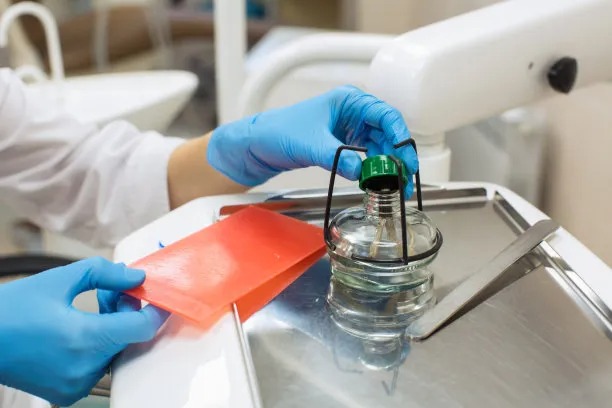Summary: Root canal treatment is an essential dental procedure aimed at preserving a compromised tooth by eliminating infected or inflamed pulp. While it is widely regarded as a safe and effective solution, certain precautions must be taken to ensure its success and minimize any potential risks to the patient. This article explores four key aspects of preparation and care during root canal treatment: thorough diagnosis and treatment planning, effective infection control practices, proper anesthesia and patient comfort, and the importance of follow-up care. By adhering to these precautions, dental professionals can enhance treatment efficacy, safeguard patient well-being, and foster a more positive dental experience.
1. Thorough Diagnosis and Treatment Planning

Successful root canal treatment begins with an accurate diagnosis. Dentists should conduct a comprehensive clinical examination, including a thorough medical and dental history. Radiographic imaging, such as X-rays, plays a crucial role in revealing the extent of tooth decay, infection, or damage within the pulp chamber, guiding the treatment plan. Identifying the specific needs of the patient is critical to ensuring an effective approach.
Moreover, creating a precise treatment plan allows dentists to anticipate complications that may arise during the procedure. This plan should outline the techniques and materials to be used, ensuring all necessary instruments are prepared beforehand. Effective planning also involves setting realistic expectations for the patient regarding the duration of the procedure and possible outcomes.
By investing time in both diagnosis and treatment planning, dentists can significantly improve the overall success of the root canal procedure, ultimately leading to a more satisfactory experience for their patients.
2. Effective Infection Control Practices
Infection control is a vital aspect of root canal treatment, as the procedure involves working within a sterile environment. Dentists must implement strict infection control protocols to minimize the risk of introducing pathogens during treatment. This includes sterilization of instruments, the use of barriers like gloves and masks, and thorough disinfection of the operatory workspace.
Furthermore, maintaining a dry and isolated working field is crucial to prevent contamination from saliva or other oral fluids during the procedure. This can be achieved using rubber dams or isolation techniques that help keep the treatment area free from external contaminants. Dental professionals must be meticulous in adhering to these practices throughout the treatment.
Following effective infection control measures not only protects the patient but also contributes to the overall success and longevity of the root canal therapy, leading to a better long-term outcome for the treated tooth.
3. Proper Anesthesia and Patient Comfort
Ensuring patient comfort and managing anxiety is essential during root canal treatment. Dentists must assess the individual needs of each patient, often opting for local anesthesia to ensure the procedure is painless. Understanding the patients level of discomfort and anxiety can help customize sedation options, whether through medication prior to the procedure or the application of calming techniques.
During the procedure, continual communication between the dentist and patient is essential. Dentists should regularly check in with the patient to ensure they are comfortable and address any concerns that may arise. This open line of communication helps build trust and can enhance the overall experience for the patient.
By prioritizing proper anesthesia administration and fostering a comfortable environment, dental professionals can significantly reduce fear and anxiety, making the root canal experience more pleasant for patients.
4. Importance of Follow-Up Care
Follow-up care is a critical component of ensuring the long-term success of root canal treatment. After the procedure, dentists should provide patients with detailed aftercare instructions, including signs of potential complications to watch for, such as persistent pain, swelling, or fever. This empowers patients to actively participate in their healing process and seek timely assistance if necessary.
Regular check-ups post-treatment are also essential to monitor the healing progress of the tooth and surrounding area. These follow-ups provide opportunities for dentists to assess the success of the procedure and address any arising issues proactively. Additionally, they reinforce the dentist-patient relationship, fostering continued care and trust.
By emphasizing the importance of follow-up care, dental professionals can help ensure that patients maintain good oral health and achieve the best possible outcomes from their root canal treatment.
Summary:
In conclusion, adhering to essential precautions during root canal treatment is vital for patient safety and procedural success. By focusing on thorough diagnosis and treatment planning, implementing effective infection control practices, prioritizing patient comfort through proper anesthesia, and emphasizing the importance of follow-up care, dentists can greatly enhance the treatment experience and outcomes.
This article is compiled by Vickong Dental and the content is for reference only.
Vickong Dental
Vickong Dental is a large medical group established in Hong Kong in 2008 by professors from well-known medical universities in Guangdong and Hong Kong, as well as medical doctors from key national '985' universities (including Master's supervisors and senior professors). The chain of branches brings together expert dentists with PhDs and Master's degrees from Hong Kong and Mainland China, committed to providing high-quality dental treatment.
"Vickong Dental Practices the University Motto of 'Healing and Serving Society,' with a Stable Operation for Sixteen Years. It Has Been honored with Hong Kong Enterprise Leaders's Choice,' and is a Global Trusted Implant Center for the Nobel Implant System. Recommended by Hong Kong Metro Broadcast and Guangdong Television, it Serves Customers from Over Thirty Countries and Regions, Gaining the Trust and Favor of Citizens from the Guangdong-Hong Kong-Macau Greater Bay Area and Surrounding Cities.

Thousands of customers' unanimous praise
The most recognized and highly recommended dental service by customers in the Guangdong-Hong Kong-Macau Greater Bay Area
We Ensure You Receive Detailed Care and Attention Here
Hong Kong standards, Shenzhen prices, Your Trusted English-speaking dentists

Vickong Dental Medical-Grade Instrument Disinfection Process
Vickong Dental Medical-Grade Instrument Disinfection Process

Vickong Dental Chain: A Warm and Comfortable Environment for Treatment






Appointment Hours

Q&A
Why choose Vickong Dental?
Vickong Dental practices the university motto 「Medicine to Benefit Society」, with each branch bringing together highly qualified dentists with doctoral and master’s degrees from Hong Kong and the Mainland, and has maintained seventeen years of steady operation。Recipient of 「2024 Hong Kong Enterprise Leaders Brand」, 「2025 Hong Kong Enterprise Leaders Brand」, a Nobel Biocare Global Trusted Implant Center, and a brand recommended by Metro Radio Hong Kong and Guangdong TV。
To date, we have served customers from more than thirty countries and regions,earning exceptionally high word-of-mouth recognition and trusted recommendations from residents across the Guangdong-Hong Kong-Macao Greater Bay Area and surrounding cities
We have eight major branches in Zhuhai、Shenzhen,and a consultation and service assurance center in Hong Kong,so you can book a free consultation at any time for any questions,which is very reassuring.
If I do not accept the quotation after the CT scan, will I be charged??
No! As long as the actual treatment has not started, you will not be charged any fees.
Will there be any additional charges during the treatment process?
No, there won’t be any additional charges. Before treatment begins, we will clearly explain the treatment plan and its corresponding fees. Only after the patient agrees and signs the consent form will we proceed with the dental service.
Can I pay in Hong Kong dollars?
Yes. Vickong Dental accepts payment in Hong Kong dollars. The amount will be converted based on the exchange rate of the day, and the applicable rate will be clearly communicated to you in advance.
Can I reschedule my appointment at any time?
Yes. Please contact us via **WeChat** or **WhatsApp** as early as possible, providing your original appointment time and details, along with your preferred new date and time slot for rescheduling.













